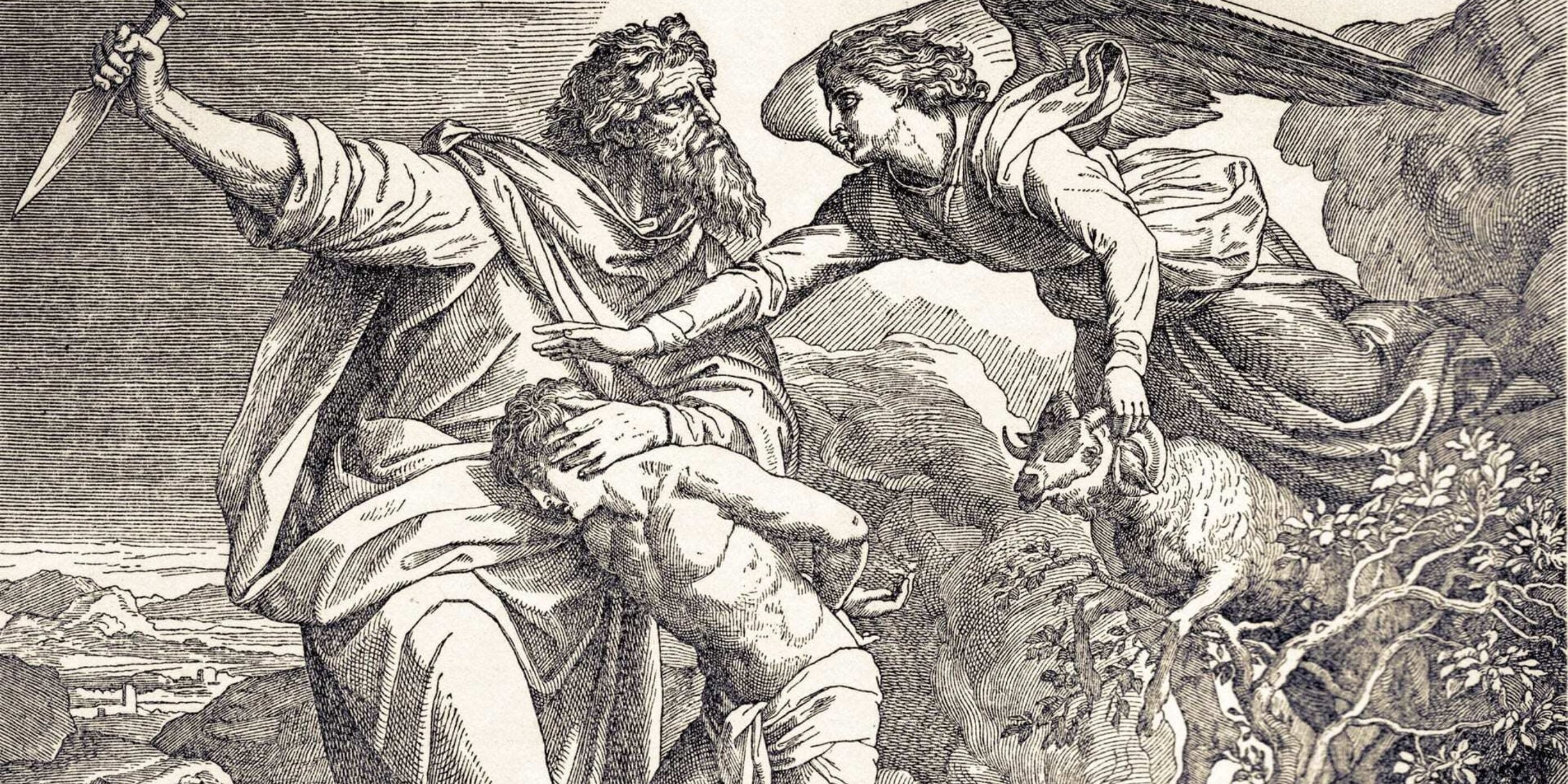How would you summarize the Old Testament? It seems to me that it is largely about the Lord revealing Himself as the one true God—and it is about the invitation to trust Him completely.
The story of Abraham is about God’s goodness and Abraham’s response. Can Abraham trust the goodness of God for whom nothing is impossible? Can Abraham open his heart widely enough to let God make him great? In a word, if Abraham can put God first, then he will not lose Isaac.
In today’s second reading, the author of Hebrews explains Abraham’s exemplary obedience: “He reasoned that God was able to raise even from the dead” (Heb 11:19). This is a lesson Abraham learned over his lifetime. God raised up life for Abraham and Sarah though Abraham was “as good as dead” (Heb 11:12). Most of all, Abraham received Isaac back from the realm of death. No wonder Isaac became a type or symbol of the Crucified and Risen Jesus!
One of Abraham’s first lessons was that nothing is impossible to God: “is anything too hard for the Lord?” (Gen 18:14). The other lesson—that God truly loves us—is as important, for when we know the Lord loves us, then we learn to trust Him completely.
Today’s reading refers to the request made of Abraham to give up everything, including his hope for the future, a hope centered entirely on Isaac. The Lord knows what a big ask this is: the sacrifice of “your son, your only son, the one you love” (Gen 22:2). But the Lord also knows Abraham’s potential.
Through his long life, Abraham responded to the Lord, though not always fully or perfectly, indeed, sometimes provisionally with a Plan B, just in case. At times it seemed like Abraham was trying to force God’s promises, to seize them for himself rather than accepting them from God, in God’s time, in God’s way, and, most of all, as God’s gift.
Abraham’s call from God comes immediately after the disaster of the Tower of Babel. God begins all over again with Abraham. Our learning to trust and obey the Lord will necessarily be part of that. God’s promise to Abraham is the opposite of the grasping, forcing, and climbing of Babel. It is the Lord who will make Abraham’s name great and make him into a great nation and a blessing for all people (Gen 12:2). But now Abraham is asked to surrender Isaac as a burnt offering to God . . . How then can the promises possibly come to pass?
What is Abraham’s response? Silence and obedience. Clearly with a heavy heart he obeys and prepares to give the Lord what is asked. Yet deep below that heaviness of heart is trust in the Lord who is faithful to His promises. Deep in that silence is a willingness to surrender to God.
Sometimes, what the Lord places before us seems initially terrible and terrifying. Often, we can improve situations or improve the lot of those around us. Sometimes, however, like Abraham, we simply have to obey the Lord while not always understanding. We have to sacrifice our own Isaac. Saints like Jane Frances de Chantal and Columba Marmion use language like “sacrificing our Isaac” as we grow closer to God. God asks—but He always gives more than He asks.

When we are asked to “sacrifice our Isaac,” God provides what is needed. He provides the Lamb (Gen 22:13). He provides when we rely on Him. Indeed, the name of the place of Abraham’s greatest trust is “the Lord provides”: the Lord will see to it (Gen 22:14).
The living God would never demand child-sacrifice as did the false gods of surrounding cultures. The Old Testament strongly condemns child-sacrifice. The issue is Abraham’s knowledge of God and trust in Him. By now, Abraham should know that “if he obeys God’s command to sacrifice Isaac, he will not be ending Isaac’s life. He passes the test only if he believes that in obeying God he is not giving up Isaac” (Eleonore Stump, Wandering in Darkness, 300).
Yes, he must obey God: obedience to God is life; disobedience is death. But now Abraham knows the One who makes this request and can entrust himself and Isaac entirely to God. Abraham’s obedient trust expands his heart and makes him “into something glorious” (E. Stump). Just after this, the Lord renews the promises to Abraham superabundantly.
Abraham’s obedience is utterly relational. No one else could ask of him what God asks. What changes everything is the loving fidelity of the One who asks and draws us to Himself. This is the journey in obedience and trust that the Lord asks of us. We can say “yes” completely because we trust in the God who is able to “raise even from the dead.”


